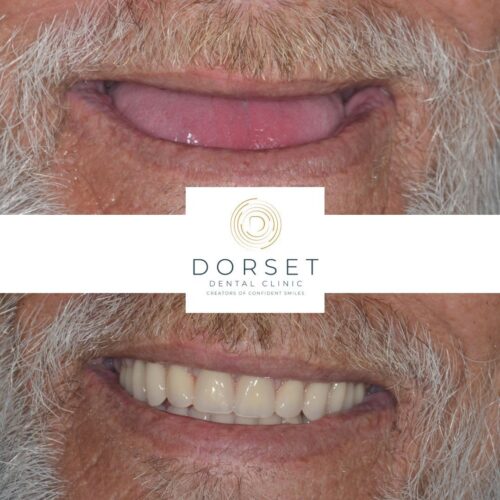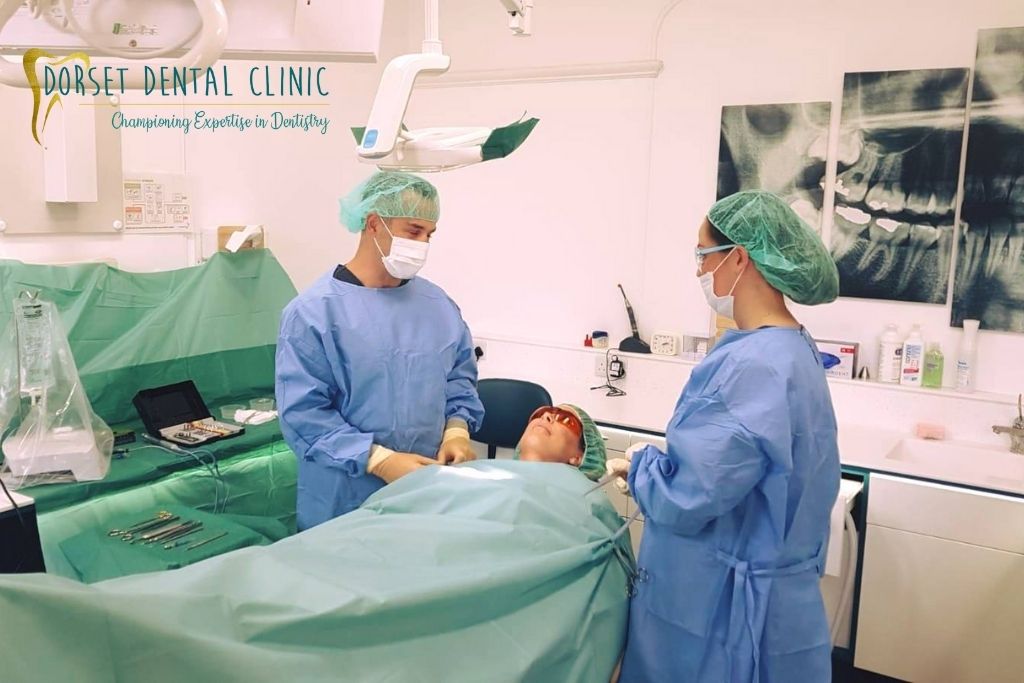Which is Better for Missing Teeth? Dental Implants or Bridges?
Dental bridges and dental implants are two reliable treatments to replace missing teeth.
But to immediately answer the question of which treatment is better, then dental implants are the best tooth replacement method, without question.
The bottom line is that dental implants replace the lost tooth root in the jaw, which prevents bone loss, tooth movement, gum disease and further tooth loss from occurring in the future.
Prosthetics like dental bridges replace the tooth aesthetically and cause unnecessary damage to otherwise healthy teeth in the process, offering patients a short-term solution instead of a long-term fixed option.
Before and after dental implants:

How they look
In terms of aesthetics, dental implants are the clear winner. They are much less noticeable and function just like natural teeth.
Dental bridges, on the other hand, are more visible and can become more evident as patients age (some patients might even complain about a gap between their bridge and gums as the cement wears off).
However, both bridges and implants restore a patient’s facial shape, preventing facial sagging and a sunken appearance.
How they feel
You shouldn’t be able to distinguish between a dental implant and a bridge. The only time you’ll notice something is different is when a dental bridge has just been placed, as it might take a few weeks to adjust to it fully.
The same can be said for dental implants, although the experience is slightly better.
Patients will find that they have a comfortable bite, that their new teeth have a similar texture to their natural teeth, and that they feel more confident with an implant restoration than with a bridge.
When a prosthetic feels weird or uncomfortable in the mouth, it might be because it’s loose.
The cost difference
Dental implants cost around £2,550 for the dental implant, the abutment and the crown.
Dental implants:
Dental bridges:
Dental bridges are cheaper than dental implants. Dental bridges can cost anywhere from £550 to £1,200, depending on the clinic you choose and the type of bridge.
With some dental bridges lasting five years, this might mean that you could spend more money on bridge replacements than a dental implant over your lifetime.
For example, dental implants can last up to 30 years, and whilst some bridges can last up to 15, they can only do so with the proper care and attention.

Oral benefits
Patients must have natural teeth on either side to bridge the gap between two missing teeth, and these remaining natural teeth must be filed down so a dental crown can be placed for the bridge to anchor to.
Once this process has been completed, it cannot be reversed, and you’ll have to maintain your dental crowns for life – your natural teeth cannot be restored, which sadly means unnecessary damage is done to the healthy portions of your smile.
Dental implants, on the other hand, do not rely on other teeth and are implanted directly into the jawbone to replace a tooth root. They’re the best prosthetic that promotes good oral health as they prevent the breakdown of bone in the jaw, teeth shifting out of place, gum disease, and later tooth loss.
Dental bridges do not prevent bone loss, which might cause you problems later down the line. See more consequences of tooth loss.
In addition, dental decay is often common with dental bridges, as decay can occur under the bridge due to improper care and hygiene.
In comparison, the implant’s final restoration, typically a crown, does not develop decay.
Read more
